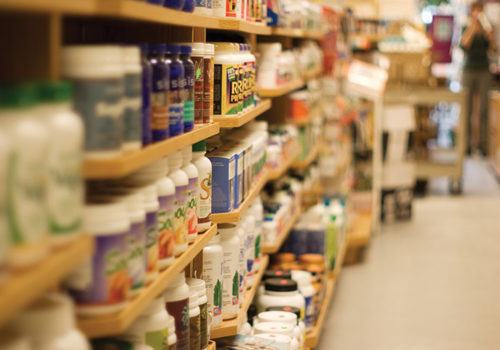The financial figures are getting more and more impressive. Private label food and beverage sales surpassed $98 billion in the United States in 2011, according to Packaged Facts (1). That accounts for 17.6% of total food and beverage sales.
This doesn’t even include sales from other categories that your retailing peers have private labeled successfully, from supplements to health and beauty care. Now, of course one size, or in this case one degree of private labeling investment, does not fit all, and private labeling may not be a fit for some retailers at all. But with these statistics in full view, you must ask yourself: How does my store stack up?
Why Buy Store Brand?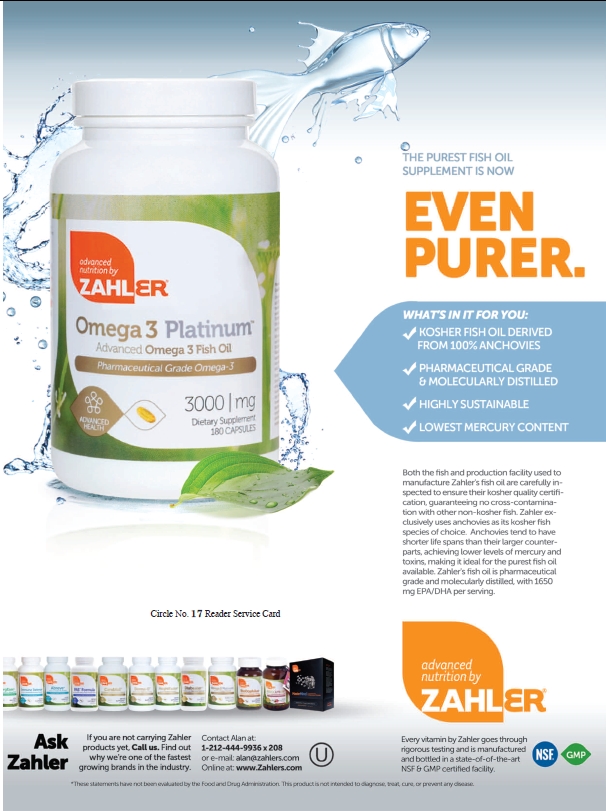
You could just make them the easiest to reach items on your shelves, but ultimately, consumers need good reasons to buy private label products. Price is often a big advantage, but retailers shouldn’t rely on economics to prop up and define their brand. The trick is to promote the quality of your store brand products, and then to retain customer loyalty once they’ve tried them. National brands are hard to compete with in many respects, but there are ways to leverage an investment in private label to your advantage.
At homeopathic medicine specialist King Bio, Asheville, NC, the firm’s president Frank King, N.D., D.C., says there is a focus on making quality national brand equivalents for all of the top-selling homeopathic products. But there is also a program in place to help retailers distinguish their offerings beyond “equivalency,” instead allowing for “advancement” over national brands. “This offers the private label customer the ability to offer higher homeopathic potencies than other brands, and in a pure water base instead of the traditional alcohol or sugar bases found in most homeopathic products,” King says.
The process of making sure your private label matches or exceeds its competition is multifaceted. “Retailers need to be thorough when researching potential private label options. Make sure product selection rivals that of the leading national brands. Make sure the supplier is using quality (branded/trademarked) ingredients,” says Kenny Flores, vice president of sales in natural for Reliance Private Label Supplements, Edison, NJ. He adds that retailers should take the time to ask tough questions of their suppliers, and if possible to visit their facilities. A quality supplier will gladly accommodate you on a tour.
Distinguishing your products begins with quality and safety, and continues with the look and feel. “Retailers need to make their store brands look just like national brands. They require a professional-looking package and label,” says Peter Sokoloski, private label manager at NOW Foods, Bloomingdale, IL. If possible, he adds, it’s important to include good manufacturing practice (GMP) and quality seals on the label to match the vibe of the name brands on your shelves.
S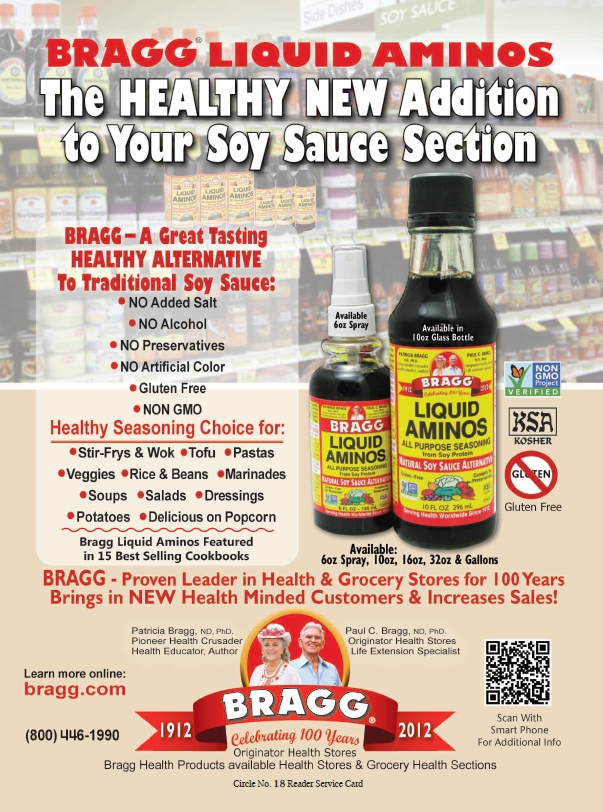 teve Shriver, president and founder of Eco Lips, Inc., Cedar Rapids, IA, says, “If you understand the key selling attributes of the top seller in the category, you can better understand what drives the consumer purchase.” It’s all about knowing what’s important in a given product space. “If it’s certified organic, fair trade, gluten free, you need to say it loud and proud on the PDP!” says Shriver.
teve Shriver, president and founder of Eco Lips, Inc., Cedar Rapids, IA, says, “If you understand the key selling attributes of the top seller in the category, you can better understand what drives the consumer purchase.” It’s all about knowing what’s important in a given product space. “If it’s certified organic, fair trade, gluten free, you need to say it loud and proud on the PDP!” says Shriver.
Flores explains that once retailers have partnered with a quality supplier and launched “their brand,” labels and all, it is crucial to feature it. “Many retailers are missing the mark. Send a strong message to your customers and give ‘your brand’ premiere placement in the store. If you have confidence in ‘your brand,’ your customers will too,” he says.
The cycle of branding that takes place when you private label extends beyond the walls of your store. David Gerhardt, vice president of sales for King Bio, reminds us that, “Every time a consumer looks in their cupboard, medicine cabinet or refrigerator and sees the private label, it is a commercial or reminder to the consumer about ‘their’ store.’”
Focusing on price as the most important advantage your private label offers can be a mistake, argues Jane Drinkwalter, vice president of sales at Vitamer Labs, Irvine, CA. “Private label products allow you to set the tone of your store. All the brands look alike in every store and on the Internet. Your label looks like your store. It carries your theme throughout the store and into your consumers’ homes,” she says.
Promoting your SKUs is paramount in making this branding effort successful. “They should merchandise their own brand on end caps, prominently in flyers and ads and by calling it out on the store shelves with special tags. Many participate in community outreach programs, have tours of the store and offer gift baskets at special events,” Drinkwalter says.
One tip for private labeling successfully with supplements is to 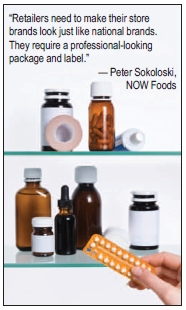 remember that they are not perishable, at least not like food is. With a dramatically longer shelf life, retailers should not expect to make as many turns through these products, according to Paul Licata, president of Licata Enterprises, Huntington Beach, CA. Therefore, in order to achieve a high profit margin, it may help to buy more heavily, which allows for a greater return on investment when the products do sell.
remember that they are not perishable, at least not like food is. With a dramatically longer shelf life, retailers should not expect to make as many turns through these products, according to Paul Licata, president of Licata Enterprises, Huntington Beach, CA. Therefore, in order to achieve a high profit margin, it may help to buy more heavily, which allows for a greater return on investment when the products do sell.
Licata also recommends that one not skimp out on the private label SKUs. Visualize the effect of walking into a store with only a handful of private label supplements on a wall with hundreds of items. They get lost, Licata says, and the consumer may think they are there solely to offer a cheaper option. Present them with a more formidable array of private label options, and your chances of standing out are much greater.
This means having a broad and full selection of products, say 50 or more, and not just SKUs but actually distinct products. Larger stores or chains could do well with upwards of 100. “Why do I say this? Because when a consumer sees a lot of different products, it automatically connotes bigness, strength, security, investment, and even quality,” Licata says.
In addition, “With a broad selection, you also give your employees a focal point to start their sales,” Licata adds. Here’s how the conversation can go, he says: Need a multiple? We have three options in our private label. Need some vitamin C? We have a capsule, high potency, low potency and a C-complex. “I also recommend that in addition to a broad basic product selection, the retailer should pick several ‘specialty formula’ products to highlight,” he says, because each of these products provides a great story about science and health for the retailer to tell the customer.
Red Light, Green Light: Private Label Edition
Then again, specialty formulas might not work for everyone. There may be no straight ahead guide to dos and don’ts in private labeling, but consider these tips from those who deal with successes and failures on a daily basis.
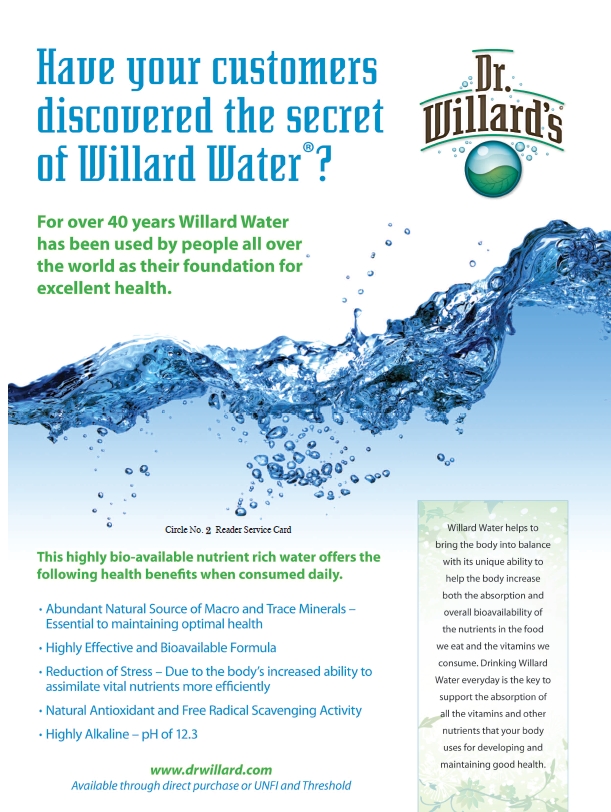 In the homeopathic product space, King says that top sellers tend to address symptoms of asthma, allergies or yeast infections. He elaborates, “Some of the top-selling homeopathic products worldwide are remedies to relieve flu symptoms and remedies with Arnica montana for pain relief, both oral and topical.”
In the homeopathic product space, King says that top sellers tend to address symptoms of asthma, allergies or yeast infections. He elaborates, “Some of the top-selling homeopathic products worldwide are remedies to relieve flu symptoms and remedies with Arnica montana for pain relief, both oral and topical.”
For dietary supplements, most agree you can’t go wrong with multivitamins, vitamins A, B, C etc., and minerals. “These categories always sell and are timeless. From a consumer’s perspective, many of these have become commodities,” says Licata. Typically, these commodity-type supplements are the easiest to gain a foothold with in private label. “These are usually simple and easy-to-understand formulas where consumers should have no objection to a store brand concept,” says Sokoloski.
There are fairly simple reasons for this. “It seems to be easier for consumers to grasp private label commoditized items, such as lip balm, over specialty items like a facial toner,” says Shriver, with the logic being that when consumers have uncomplicated expectations for a product, it is a safer purchase in their minds, and it is therefore easier to meet and exceed their expectations.
The current private label boom may have its roots in a down economy, Drinkwalter points out, but sales still trend upward in many categories. “Consumers are purchasing both their daily regimen products (multiples, calcium, probiotics, protein powders, omega-3 products and vitamin D) and are taking a closer look at condition-specific products like healthy heart support, healthy weight support and brain support products,” she says.
But by the same token, Sokoloski cautions, attempting to go head-to-head on commodity items with the lowest priced retailers (your Walmarts and your Amazons) may be a set up for failure. “That’s when they’ll need to expand their lines with unique offerings that aren’t subject to price wars or easy comparisons to other brands,” Sokoloski says. But hold on again. Licata emphasizes that, at least with supplements, specialized formulas are a hard area in which to compete, too. National brands generally promote these more.
There may also be more investment 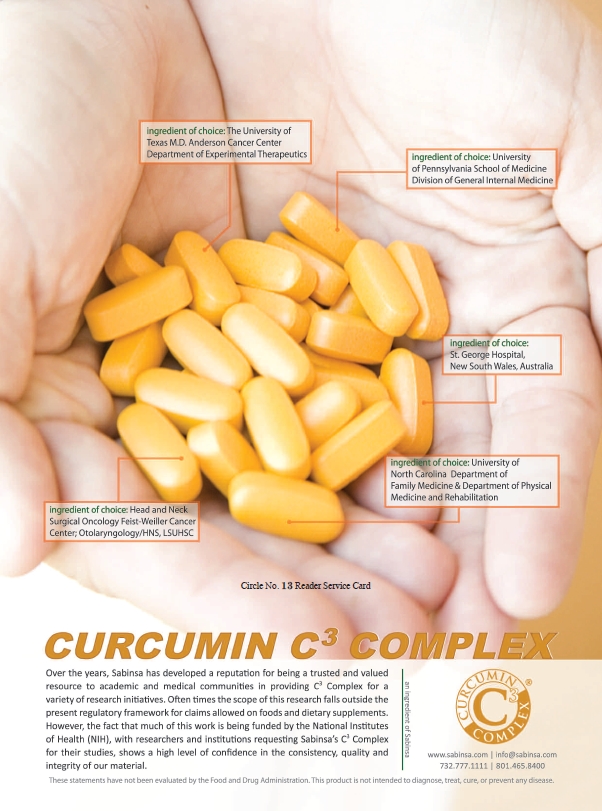 occurring on the part of national brands. An article in Drug Store News cited by Drinkwalter quotes Craig Elston, senior vice president of The Integer Group as saying, “Categories that offer shoppers frequent innovations such as performance or variety, and categories where personal stakes are higher, are more difficult areas for private-label products to compete” (2). Licata says that this is where having a broad private label line, to lend your specialty items credibility, comes into play. As a side note, women especially are the ones you need to win over, as 90% of them compare brand names to private label offerings when shopping, according to the article (2).
occurring on the part of national brands. An article in Drug Store News cited by Drinkwalter quotes Craig Elston, senior vice president of The Integer Group as saying, “Categories that offer shoppers frequent innovations such as performance or variety, and categories where personal stakes are higher, are more difficult areas for private-label products to compete” (2). Licata says that this is where having a broad private label line, to lend your specialty items credibility, comes into play. As a side note, women especially are the ones you need to win over, as 90% of them compare brand names to private label offerings when shopping, according to the article (2).
Whatever you’re selling, make sure to refresh your offerings with the change of the times. “As I talk with retailers around the country, they are constantly looking for private label categories because they are discontinuing so many slow sellers. The trends don’t last long and there is a need to be current,” says Gerhardt.
Beyond sales trends and the latest thing Dr. Oz says, the other area to keep abreast in is controversy. Gerhardt explains that retailers can run into issues with certain products just like national brands, so it is vital that you choose a supplier with a great legal track record. He says, “It can be difficult for the retailer when a hot-selling private label product becomes a liability, for example if a popular item gets recalled or has a legal or health issues.”
Regulation and Private Label
The potential for legal troubles, not to mention the need to protect the safety of one’s customers, mean that successful private label lines often have nosy retailers behind them. Some of the top questions that private label suppliers receive from retailers change with the regulatory climate, but many stay the same.
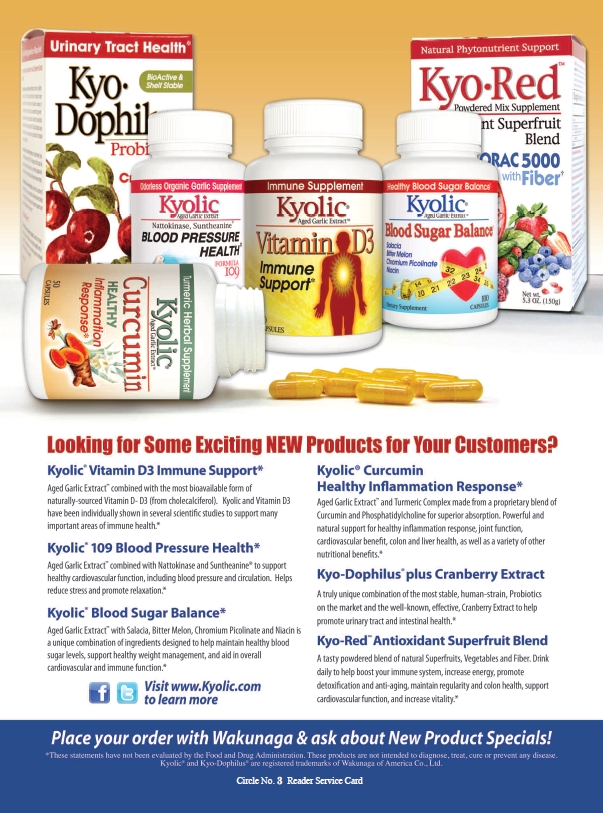 For Shriver at Eco Lips, certified organic is the topic of most private label discussions. Retailers, he says, don’t want to misrepresent their products. In the personal care category, many brands abuse the word “organic,” taking advantage of the organic craze. “Most retailers we work with want to make sure they stay true to the cause by labeling their private label according to USDA NOP standards,” Shriver says.
For Shriver at Eco Lips, certified organic is the topic of most private label discussions. Retailers, he says, don’t want to misrepresent their products. In the personal care category, many brands abuse the word “organic,” taking advantage of the organic craze. “Most retailers we work with want to make sure they stay true to the cause by labeling their private label according to USDA NOP standards,” Shriver says.
Retailers are now curious about a wide range of topics, as they have grown more and more discerning, according to Drinkwalter. “They want to know if we are GMP compliant, who our third-party certifiers are, where and how our products are sourced and, of course, specifics about certain products, like the sustainability of fish oil products,” she says.
Non-GMO products are a hot button issue, Drinkwalter adds, in California especially due to Proposition 37. The ballot measure did not pass on November 6, however, meaning GMO-containing products will not have to be labeled as such. But awareness of the issue was certainly increased among consumers. The technical department at Drinkwalter’s company deals with many other issues on a weekly basis, such as allergen-related questions, for example.
Requests for Certificates of Analysis and audit reports are common at Sokoloski’s company, as well as requests for factory tours by retailers. He says it is unusual when a retailer doesn’t request quality-related information.
The nature of the answers retailers receive on these topics varies by category. Frank Richardson, COO of King Bio, says that safety and efficacy questions about homeopathy are met with reassurance that it is a proven, safe and gentle approach to wellness. “Additionally, in the manufacturing process, we have several steps that we take to ensure safe production, and documented product testing per batch/lot run,” says Richardson.
An area where all retailer and private label 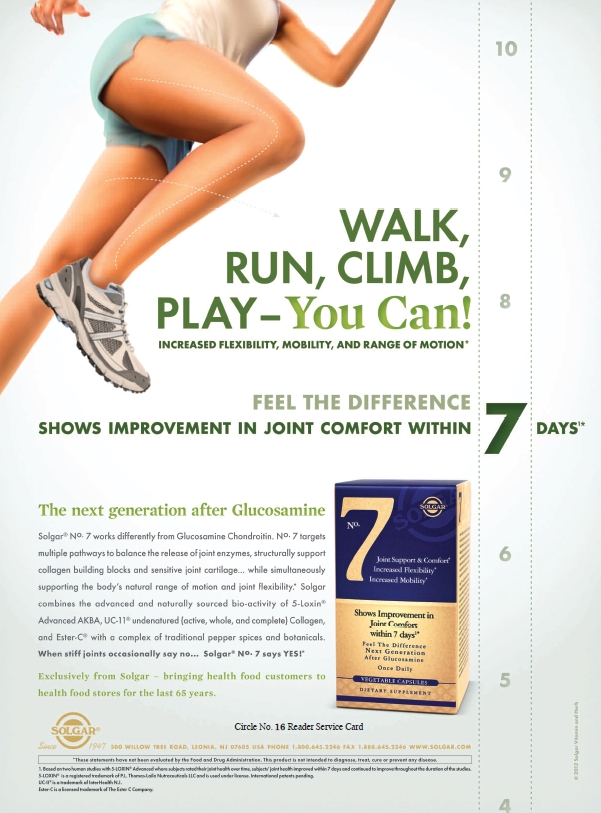 supplier partnerships must tread carefully is the product label. Sokoloski says that retailers will often be somewhat misinformed about product labels. They’ll see items that sell on the market and want their labels to match those, even when the products are not the same. When retailers want to make unsubstantiated claims, a dialogues takes place about what can and cannot be said. “It’s rare when retailers try to make claims that are potentially illegal or unethical; most retailers are responsible and only want what’s accurate to be listed on their labels,” says Sokoloski.
supplier partnerships must tread carefully is the product label. Sokoloski says that retailers will often be somewhat misinformed about product labels. They’ll see items that sell on the market and want their labels to match those, even when the products are not the same. When retailers want to make unsubstantiated claims, a dialogues takes place about what can and cannot be said. “It’s rare when retailers try to make claims that are potentially illegal or unethical; most retailers are responsible and only want what’s accurate to be listed on their labels,” says Sokoloski.
It is of course the prerogative of the retailer to give direction to what goes on the label. “With the proper sign off by the customer for them to take legal and regulatory responsibility, we do make custom labels with information unique to that account,” says Drinkwalter.
While it’s not their place to provide legal counsel with regard to labeling, Amy Wright, contract manufacturing coordinator at King Bio, says that they guide customers through the label-
creation process, including helping to review wording and layout to comply with the U.S. Food and Drug Administration (FDA). “Our customers appreciate the Courtesy Label Review we have implemented, which goes to Quality Assurance for assessment of FDA compliance, wording, potencies, spelling, and so forth,” she says.
This back-and-forth works out well in marketing private label products, because when customers want to promise “the moon” when designing labels and product marketing, the supplier’s guidance can rein in any claims to a permissible, legal place, according to Wright. She says that problems can arise when a client’s label claims must be amended due to changes in regulations.
 Retailers need to be aware of their supplier’s readiness to face FDA facility inspections, and whether their supplier is GMP compliant. Many FDA warning letters have been sent to manufacturers that have been found lacking in the GMP department. Sokoloski adds that being generally aware of how raw material and finished goods testing works, as well as being knowledgeable about labeling laws, will put retailers in good stead. He says that once retailers begin to learn about these areas, they’ll realize that FDA is cracking down on companies that fail audits and those that make unsubstantiated or drug-like health claims.
Retailers need to be aware of their supplier’s readiness to face FDA facility inspections, and whether their supplier is GMP compliant. Many FDA warning letters have been sent to manufacturers that have been found lacking in the GMP department. Sokoloski adds that being generally aware of how raw material and finished goods testing works, as well as being knowledgeable about labeling laws, will put retailers in good stead. He says that once retailers begin to learn about these areas, they’ll realize that FDA is cracking down on companies that fail audits and those that make unsubstantiated or drug-like health claims.
Awareness of FDA scrutiny and compliance issues runs quite high among retailers that Richardson deals with. He says, “Of course, there are a few who don’t care to understand the details of why, and just want something that sells, but the majority want to be educated about rules and regulations. They trust us to partner with them in achieving compliance, but don’t approach it in a ‘hands off’ way.” WF
References
1. Packaged Facts, Private Label Food and Beverages in the U.S., 7th Edition, Oct. 2012. Retrieved from www.packagedfacts.com/Private-Label-Food-7165114.
2. M. Johnsen, “Study: Shoppers Opt for Private Label Over Brands Across Specific Categories,” Drug Store News, Oct. 25, 2012, http://www.drugstorenews.com/article/study-shoppers-opt-private-label-over-brands-across-specific-categories?ad=retail-news, accessed Nov. 4, 2012
Published in WholeFoods Magazine, December 2012

